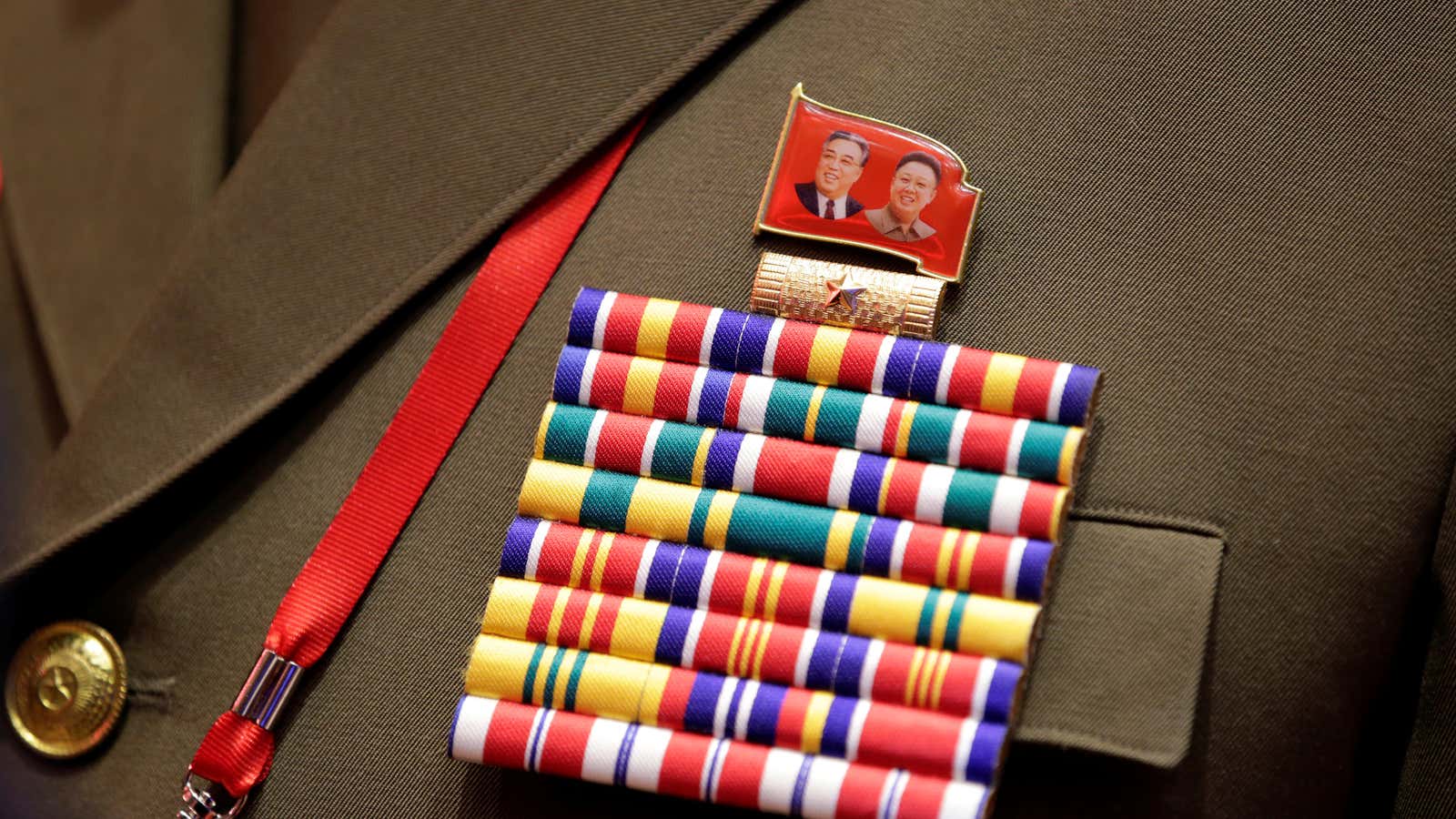In October 2015, Egypt, after much lobbying, scored a non-permanent seat on the United Nations Security Council for the two-year period of 2016-2017. While being among the council’s 10 rotating members isn’t as prestigious as being one of the permanent five that have veto power—Russia, the US, China, France, the UK—it still carries a vote and was a win for Egyptian president Abdel Fattah El-Sisi.
In March 2016, the Security Council voted unanimously for tougher sanctions against North Korea, in response to its continued testing of nuclear bombs and ballistic missiles. The restrictions included a ban on all weapons trade with the nation.
Despite voting for that ban, Egypt soon received arms from North Korea—and later tried to cover it up, as suggested by foreign ministry records the Washington Post recently obtained, according to a report published today.
In August 2016, US spy agencies sounded an alarm to Egyptian authorities about a mysterious bulk freighter with unknown cargo headed toward the Suez Canal. Named Jie Shun and flying a Cambodian flag, it had set sail from North Korea. Following the lead, customs authorities seized the vessel and discovered more than 30,000 rocket-propelled grenades worth an estimated $26 million hidden under bins of iron ore. The UN declared it the biggest seizure of ammunition in the history of sanctions against North Korea. Egypt touted its supposed transparency and cooperation with UN officials.
The intended final destination of the weapons, it seemed, remained unknown. About a year later, though, it became clear in media reports that Egypt itself was the buyer.
According to the Post, the documents date between March and May of 2017, before Egypt’s role in the weapons transfer was publicly known. In them, officials reportedly attempt damage control and appear to acknowledge their military’s role in buying the weapons. They seem nervous that North Korea, still demanding payment, might expose the business relationship. They urge that the matter be resolved quickly, preferably before Egypt’s Security Council membership ended later that year.
Of course, North Korea has many such relationships. The regime of Kim Jong Un has survived harsh sanctions in part by secretly selling cheap conventional weaponry to terrorist groups and countries that have included Syria, Iran, and Cuba.
This particular secret just happened to come out in surprising detail.
